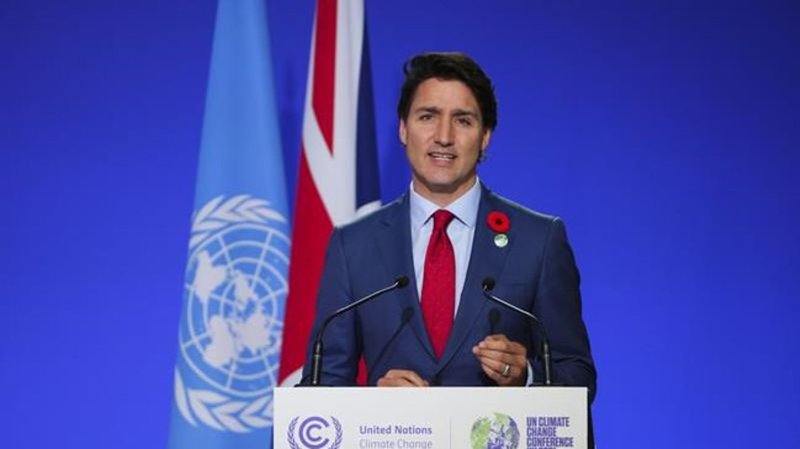
Trudeau takes carbon pricing debate to the global stage at COP26
GLASGOW, United Kingdom — Prime Minister Justin Trudeau will push the world to negotiate a minimum price on pollution at the COP26 climate talks in Glasgow today.
Trudeau will start his second and final day at the annual climate negotiations by co-hosting a carbon pricing event where he will showcase Canada’s carbon price as one of the most ambitious in the world.
He started the first day with a speech calling on the rest of the world to follow Canada’s lead and negotiate a global minimum carbon price.
He compares the idea to the 15-per-cent minimum corporate tax more than 130 countries have now signed on to implement in a bid to stop big multinational corporations from avoiding taxes by funneling their profits through low-tax countries.
